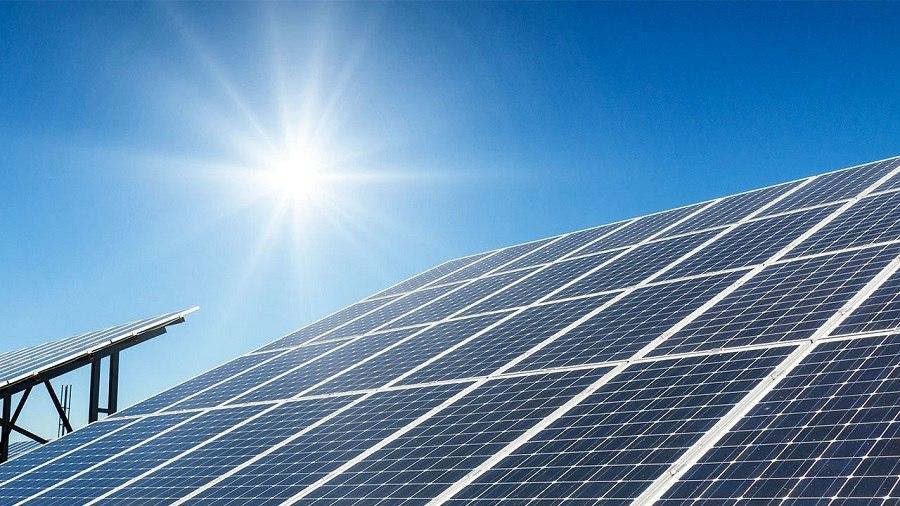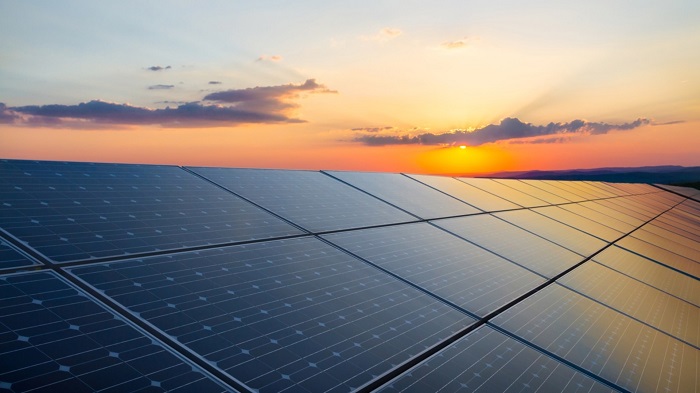Have you ever wondered about those panels on the rooftops or the backyards and thought “about how solar energy works?” In this article from Linquip, you will find all your answers about solar energy and solar panels. After reading this, you may consider switching to using solar panels for your home and office! Are you ready to know more? Then continue reading…
What exactly is solar energy?
Solar energy is considered a type of fuel. This fuel is powered by the sun and therefore it’s one of the most efficient types of fuel that is renewable and a never-ending source. We use sunlight with the help of our solar panels.
Many people wonder “How is solar energy converted into electricity?” when they think about how solar energy works.
Solar photovoltaics that is also called PV, is the conversion of sunlight into electricity.
By the use of semiconducting material, the photovoltaic effect takes place. This phenomenon causes the photons that are located inside an atom to set the electrons free from the atom, resulting in a flow of electricity. And that’s your answer to “How is solar energy produced?”
How does solar energy work step by step
For solar energy to work, you need to capture the sunlight and put it to use. How? By using solar panels! The electrons, as we described above, should be separated from the atom to create solar electricity. This process happens with the help of solar panels.
Watch the Video About How Solar Energy Works
How solar panels work step by step
Multiple PV cells in solar panels are linked together to create a solar panel. The basic ingredient for creating a panel is usually silicon. These panels are inserted in a place that can capture sunlight to do the process with the help of photovoltaic cells. They convert the energy from the sunlight into direct current (also known as DC) which is the electricity needed for different purposes. This is almost a simple explanation of how solar energy works. But then there is an inverter that converts direct current into alternating current (also known as AC) to create the electrical current that we normally use to power up the place and the desired appliances.
There are a few steps that show how solar panels work:
-
Capturing Sunlight
PV cells, as you already know, capture the sunlight to turn it into solar electricity. But since it results in producing direct current or DC, an inverter has been designed to convert it into AC. This is where step 2 comes into play.
-
Converting DC into AC
Two types of inverter are used for solar panels. One of them is a string inverter (also known as a single inverter) and the other is a micro-inverter that is connected to the back of these panels. The DC produced by solar panels is converted to AC or alternating current with the help of these inverters. So, if you are wondering “how do solar panels work for your home?” this is the electricity that we use for powering our home.
-
Using the produced power
That is how solar energy works so you don’t need to worry about how to use the produced energy. Once the setup is up and running with the help of an expert, the produced electricity will light up your house and powers your appliances.
-
What if the solar energy is not enough for lighting up my place?
You don’t need to worry about not getting enough electricity from your solar panels. If your solar panels can’t cover all your electricity needs, you can still use your traditional power grid. Your appliances automatically use the grid to enable you to draw more energy from your utility.
-
What if my solar panel produces more power than I normally use?
Now you know how solar energy works, but what happens when there’s extra power produced by your panel? The leftovers of your solar electricity will go to the grid! That’s right! When you keep your traditional power grid while using solar panels, you can have the advantage of saving the extra power produced by the panels in the grid. You will use as much as you like and the extra power goes to your power company to use. You already know that they work by capturing sunlight; but when the night comes and there’s no sun in the sky, or cold seasons when the days are shorter and the nights are longer and most of the days are cloudy rather than sunny, you still need the power to keep you going. That’s when the excess solar power comes in handy.
- Keep in mind that even when it’s cloudy and clouds are blocking the sun, your solar panels still produce power, the only difference is in the amount of power they produce.
A few notes on the advantages of solar energy
- Using solar energy can save you money in the long run by sending excess energy back to the grid.
- You can also store the extra energy on a solar battery to use it whenever you want, however you want. You can easily use this extra energy when there’s an outage or when it’s cloudy out there.
- Solar panels are really durable and last for a long time, so as long as there’s a sun to shine in the sky, you’ll probably have your panels to produce the necessary energy. They may break or need repairing (or in some case, replacing) but with the right maintenance, they last up to 30 years!
- Another advantage of using solar energy is that you don’t need to go through so much to keep it coming! The only regular maintenance is for you to keep your solar panels free of debris, snow, etc.
That was all there is to know about how solar energy works and all the basics you needed to know about solar panels. Do you think soon everyone will be switching into using solar energy by the use of solar panels? Comment below and let us know what you think. And if you have any questions, feel free to sign up on Linquip and our experts will be right with you to answer all your questions.
Buy Equipment or Ask for a Service
By using Linquip RFQ Service, you can expect to receive quotations from various suppliers across multiple industries and regions.
Click Here to Request a Quotation From Suppliers and Service Providers
Read More on Linquip
- A Concise Introduction to Solar Hybrid Power Systems
- Efficiency of Solar Panels
- Which Type of Solar Panel Is the Best?
- Types of Solar Panels: A Simple Guide Assisting You to Have Better Choice
- Disadvantages of Solar Energy and Why You Need to Know Them
- Advantages of Solar Energy and Why You Should Switch Into Solar Panels
- Beginner’s Guide To The Difference Between Solar Energy And Wind Energy
- What is Distributed Generation? (Clear Guide) + PDF




